Explore with Ersilia contains affiliate links and is a member of the Amazon Services LLC Associates Program. If you make a purchase using one of these links, I may receive compensation at no extra cost to you. affiliate links are how we keep this content free. A huge thanks if you use these as it helps a lot! See the Full Policy for more information.
I still remember that chilly morning during my Erasmus year in Clermont-Ferrand, 2014. Fresh from my architecture studies in Romania, I confidently walked into my local boulangerie, excited to try my first authentic French croissant. The baker, who I’d later come to know as Marie, gave me the coldest look I’d ever received. My crime? I didn’t say “Bonjour” when entering the place. Yes, when entering, not when you are already in front of the vendor. That was my first lesson in the unwritten rules of French culture – rules that would become second nature over my next decade in France.
Let me guide you through the cultural insights I wish someone had shared with me back then. Whether you’re planning a romantic getaway to Paris’s hidden corners, exploring the majestic châteaux of the Loire Valley (where my in-laws have taught me countless French family traditions), or dreaming of the lavender fields in Provence, understanding these cultural nuances will transform your French experience.
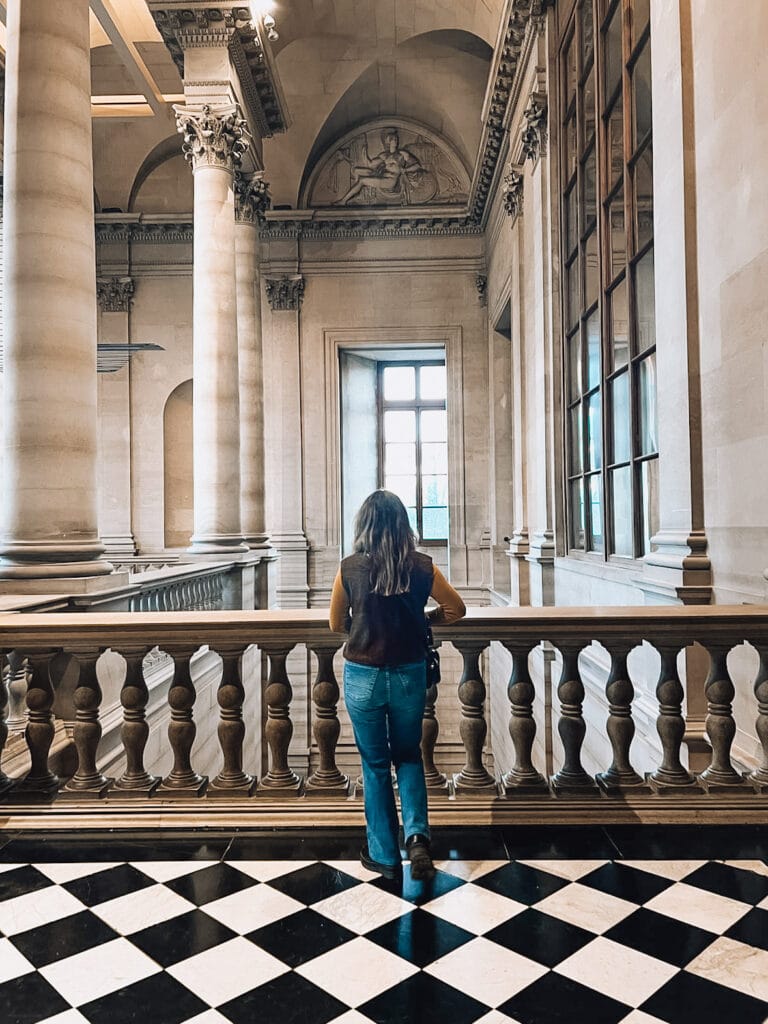
Daily Social Interactions: The Foundation of French Life
The Art of Greeting
My first month as an Erasmus exchange student in France was a masterclass in greetings faux pas. During my architecture studio presentations in Clermont-Ferrand, I once entered the room without doing the rounds of “la bise” with everyone present. The awkward silence that followed taught me more about French culture than any guidebook ever could.
La Bise (The Famous French Cheek Kiss)
In Toulouse, where I now live, we do three kisses – something I learned after numerous awkward pulling-away-too-soon moments. But visit my in-laws in the Loire Valley, and it’s just two kisses. Head to the French Riviera, and you might even encounter four! After ten years here, I’ve mastered the art of quickly asking “On fait combien?” (How many do we do?) when meeting someone from a different region.
The Sacred Bonjour Protocol
During my first family dinner with my French in-laws in the Loire Valley, I learned that “Bonjour” isn’t just for shops – it’s for every single interaction. My mother-in-law gently explained that even when getting up for breakfast, everyone gets a proper “Bonjour” with kisses, even if you’ve seen them the night before. This one word is your key to unlocking French hospitality, whether you’re exploring the medieval villages of the Dordogne Valley or shopping at local markets in Provence.
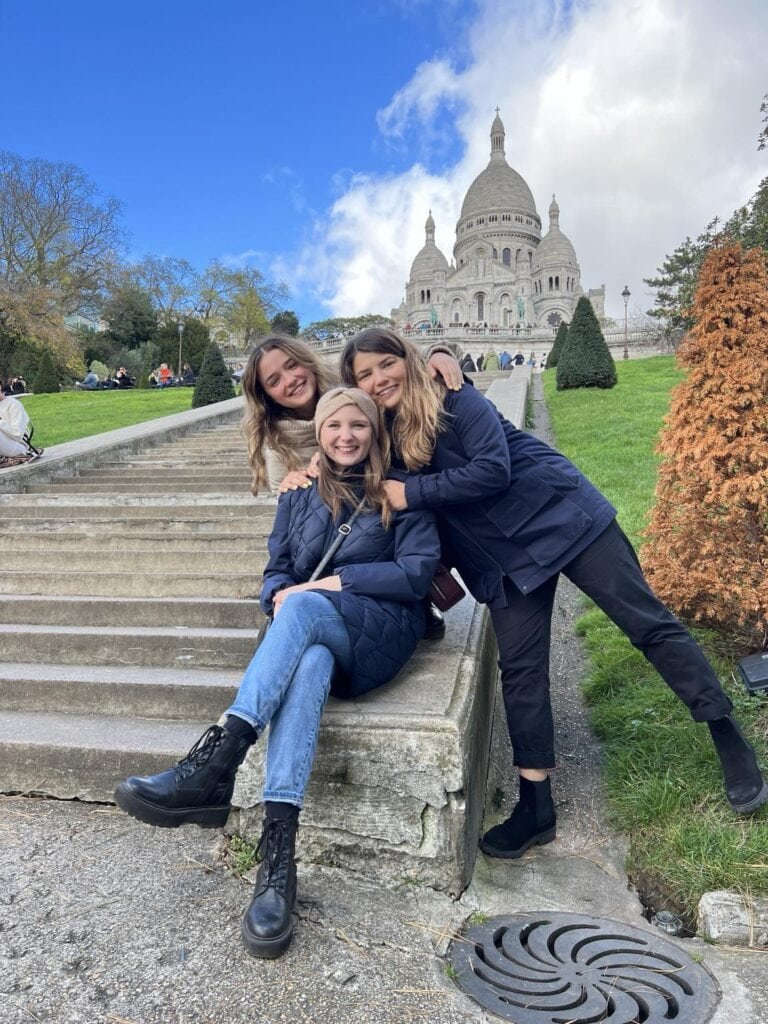
Personal Space & Politeness
Formal vs. Informal ‘You’
Coming from Romania, I thought I understood European social customs. But France taught me a whole new language of personal space and politeness. During my architecture exchange program, I made the mistake of using “tu” (informal ‘you’) with my studio professor. He wasn’t amused, but it taught me an invaluable lesson about French formality.
Family gatherings in the Loire Valley helped me understand the nuances of French formality. While my in-laws quickly invited me to use “tu,” I noticed they still used “vous” with certain family friends they’d known for decades. This seemingly complex system started making sense through Sunday lunches and family celebrations. In the end, starting by using “vous” is always a better choice. You can later adapt!
My Language Learning Journey: From Zero to French Love Language
When I first arrived in Clermont-Ferrand, my French vocabulary consisted of “Bonjour” and “Merci.” As an architecture student, I naively thought I could get by with sketches and gestures. That illusion shattered during my first group project when I couldn’t understand why my classmates kept saying “du coup” every few sentences!
My real breakthrough came through total immersion. Being the only international student in my architecture studio meant I had no choice but to learn. I started recording common phrases I heard at the university, in cafés, and during market visits. Within six months, I could discuss architectural concepts in French. After two years, I found myself thinking in French, and now, it has become my love language – though I still sometimes mix up gendered words in amusing ways!
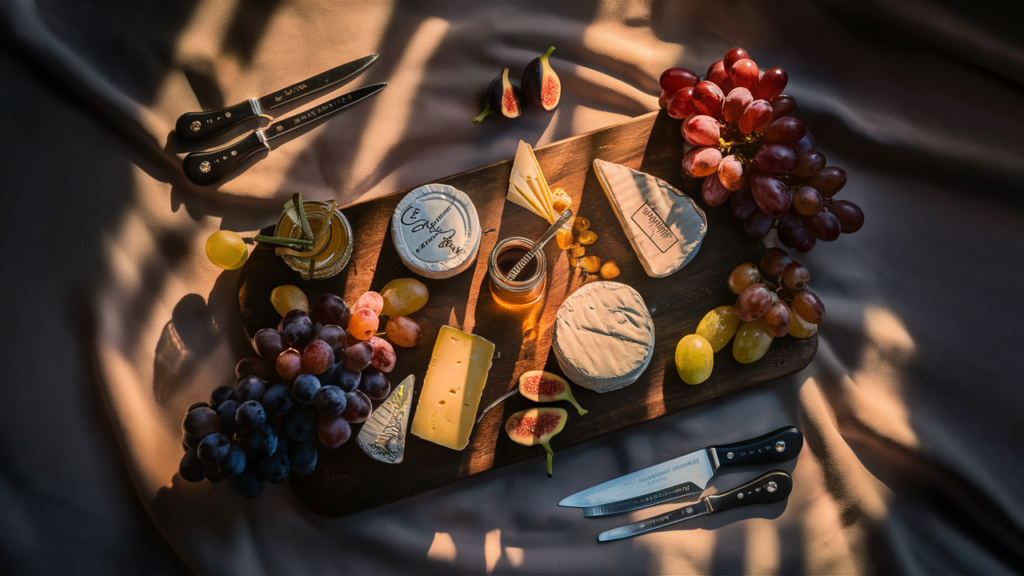
Dining Customs: Your Guide to French Food Culture
The Sacred French Meal Times
My first attempt to find lunch in Paris at 3 PM was a humbling experience. Coming from Romania, where meal times are more flexible, I had to quickly adapt to the strict French dining schedule – something my mother-in-law now teases me about during family visits.
Breakfast (Le Petit-Déjeuner)
During my first week as an exchange student, I wandered the streets of Clermont-Ferrand at 10 AM, searching for a full breakfast. Every café looked at me like I was from Mars when I asked for eggs. Now I know better – grab your croissant and café au lait early, or wait until lunch!
Lunch & Dinner Protocols
Sunday lunches with my French family in the Loire Valley taught me that meals aren’t just about eating – they’re about connection. These lunches often stretch for hours, with multiple courses and conversations flowing as naturally as the local wine. I once made the mistake of mentioning I had plans for 3 PM on a Sunday – my father-in-law laughed and said, “Not anymore you don’t!”
Lunch always happens in between 12PM and 2PM. This means you will not be able to find a proper meal outside this timetable. The entire country stops to take a pause and eat. That means that in some small towns, you might even find that clothing shops are closed during this time. Lunch time is sacred ! Eat when the french eat and you’ll also find good “menu du jour” deals in most of the local restaurants.
Apero it’s a must !
It took me some time to understand that before eating, you have a drink of alchool and take some salted bites! I wasn’t used with this but quickly got by it! This is more than a local habit, it’s part of the culture, just as drinking tea is part of the english culture.
If you walk around the city, lockout for “happy hours” in the local bars, you’ll find deals such as half the price for alcoholic beverages. If there is a certain bar you want to try, make sure to be that at 6 PM.
The French apéro is an art form I’ve grown to love. It’s more than just pre-dinner drinks – it’s a social institution. My first apéro faux pas? Arriving right on time! I quickly learned that showing up 15-20 minutes late is standard, but not more than 30 minutes unless it’s a large party.
Shopping & Services: Navigate Like a Local

Market Protocol
My most memorable market faux pas happened in Toulouse’s Victor Hugo market. I picked up a tomato to check its ripeness, and you’d think I’d committed a serious crime!
The vendor quickly (but politely) explained that touching the produce is a big no-no.
My mother-in-law later showed me the proper way to shop at their local Loire Valley market – let the vendor select the produce while you chat about how you’ll prepare it.
The Famous French Bureaucracy: A Survival Guide
Oh, the adventures I’ve had with French administration! My first encounter with French bureaucracy was extending my student visa in Clermont-Ferrand. I thought I had all the required documents, only to discover I needed a “justificatif de domicile” from the last three months. Classic French bureaucracy moment!
What I’ve learned over the years is that patience and preparation are your best friends when dealing with French administration. Always bring more documentation than you think you need, and never underestimate the power of a polite “Bonjour” to the person behind the desk.
My most recent victory? Successfully navigating the carte de séjour renewal process in Toulouse with zero trips back to collect “missing” documents!
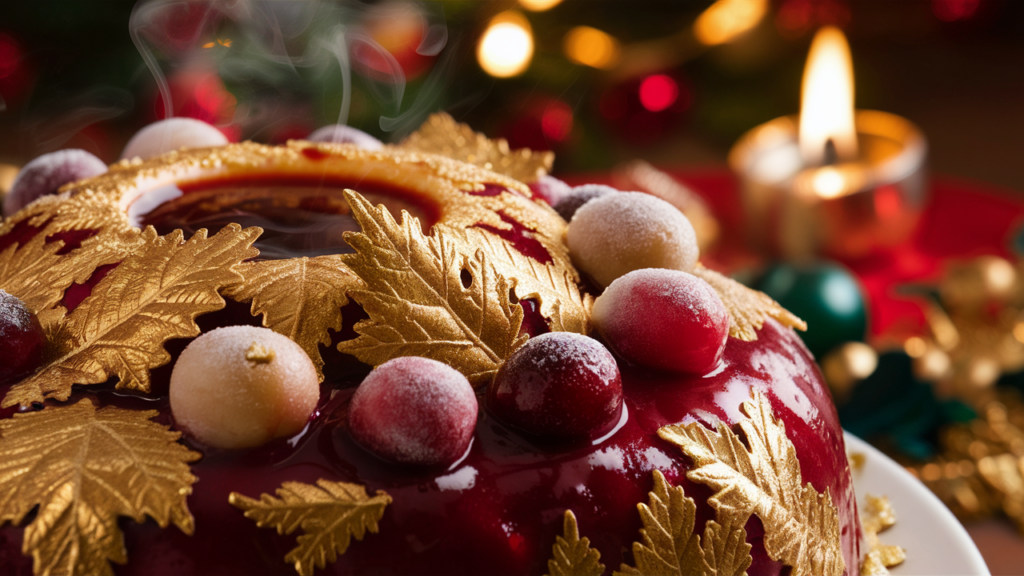
Holiday Traditions: My Journey Through French Celebrations
Christmas in the Loire Valley
My first French Christmas with my in-laws was a cultural revelation.
In Romania, we celebrate on December 24th evening, but here, the main celebration is lunch on December 25th. I’ll never forget my surprise when the “simple family lunch” turned into a five-hour gastronomic marathon, complete with oysters (a Christmas tradition I’m still trying to embrace), foie gras, and bûche de Noël.
Easter Traditions
Easter in France brought its own surprises. Instead of painted eggs like in Romania, French children wait for flying bells (“les cloches volantes”) to bring chocolate eggs.
My first Easter in the Loire Valley, I made the mistake of painting beautiful eggs, only to realize nobody knew what to do with them!
I kept repeating the “mistake” every year, as I just can’t help myself. It’s no Easter without red eggs !
Building Friendships in France: Beyond the Language Barrier
One of my biggest challenges wasn’t learning French – it was understanding the unwritten rules of French friendships. In Romania, if someone says “We should have coffee sometime,” it usually happens within the week.
In France, I learned that social plans often need to be made weeks in advance.
My breakthrough came when I joined a local architecture appreciation group in Toulouse. I discovered that French friendships, while taking longer to form than in Romania, run incredibly deep.
Now, some of my closest friends are from that group, and we regularly explore historical buildings together across the Dordogne Valley and beyond.
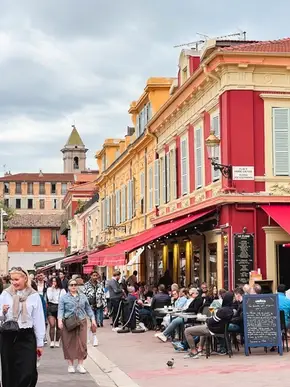
Cultural Attitudes Toward Time and Planning
The Art of French Planning
When it comes to planning, I’ve noticed a fascinating paradox in French culture. While administrative matters require extensive advance planning (try getting a doctor’s appointment!), social plans can be delightfully spontaneous – especially in the South. In Toulouse, it’s common to get a last-minute invitation for an apéro, while in the Loire Valley, social events are usually planned well in advance.
Social Gatherings and Party Etiquette
Hosting dinner parties in France came with its own learning curve. In Romania, I was used to putting all the food on the table at once. My mother-in-law gently taught me the French way: separate courses, served one at a time, with the cheese course ALWAYS before dessert.
She also explained that a dinner party without cheese is like a wedding without a bride!
Regional Variations: North vs. South
Living in both central and southern France, and regularly visiting family in the Loire Valley, has given me unique insights into regional differences. The South of France, particularly around Toulouse and the Dordogne Valley, reminds me more of my Romanian homeland – people are more expressive, social life happens outdoors, and the pace is more relaxed.
In contrast, my experiences in the Loire Valley have shown me a different side of French culture. While still warm and welcoming, there’s a greater emphasis on tradition and formality. Family meals follow stricter protocols, and social events often feel more structured – though no less enjoyable!
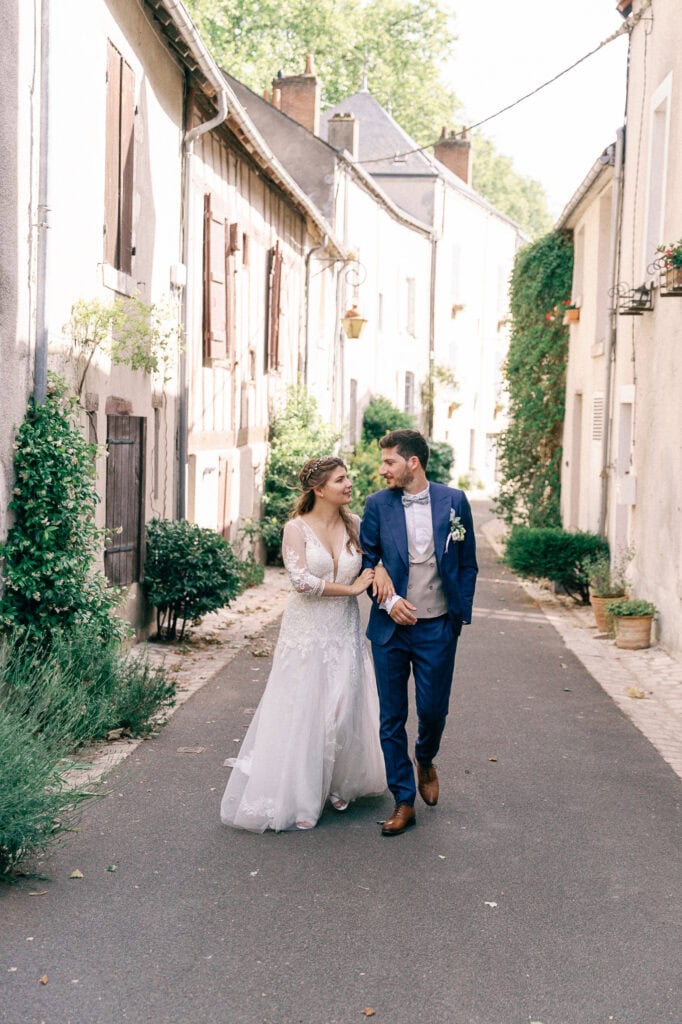
Special Occasions: Navigating Celebrations the French Way
Weddings
French weddings are a masterclass in endurance! My first French wedding lasted from 2 PM one day until 5 AM the next. The multiple-course dinner didn’t even start until 9 PM, and then there was dancing until dawn.
Coming from Romania, where weddings are also long affairs, I felt right at home – though the French tradition of having cheese before dessert still surprised me!
Birthdays
Birthday celebrations in France taught me new customs too. While bringing a cake to the office is common in Romania, in France, it’s the opposite – the birthday person is expected to provide treats for their colleagues.
Also, wishing someone happy birthday before their actual birthday is considered bad luck – something I learned after confused looks from my French friends.
Conclusion: Your Path to French Cultural Fluency
From my unexpected journey starting as an Erasmus student in Clermont-Ferrand to building a life and family in France, I’ve learned that understanding these unwritten rules isn’t just about politeness. It’s your key to unlocking authentic French experiences, whether you’re exploring the majestic châteaux of the Loire Valley or discovering hidden beaches along the French Riviera.
Want to learn more about navigating French culture in different regions? Follow my daily adventures on Instagram @explorewithersilia, where I share real-time cultural discoveries and behind-the-scenes glimpses of authentic French life!
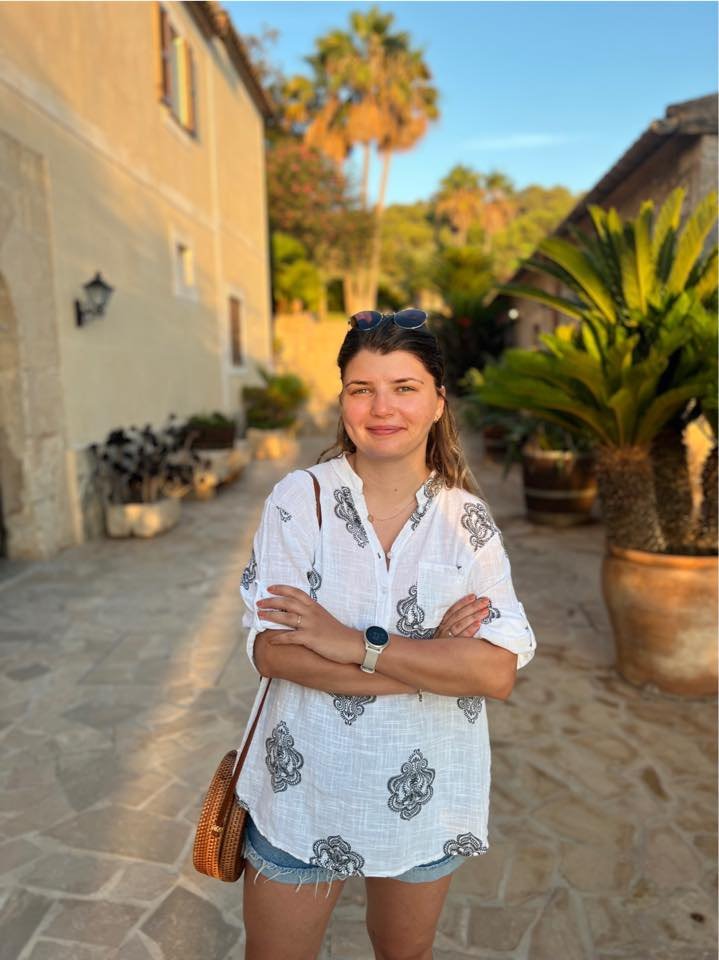
author page / EDITORIAL POLICY PAGE
Hi, I’m Ersilia

Toulouse, France

Originally from Romania

English & French Content
As a Romanian expat living in the heart of southern France, I guide English speakers to discover authentic French experiences without the language barrier. My unique perspective as both a local and an expat allows me to share insider tips, cultural insights, and practical advice that you won’t find in typical guidebooks.
My Expertise:
- French life and culture navigation
- Hidden gems across French regions
- Eastern vs Western European perspectives
- Local insights and practical travel tips
Blog Socials
Personal Pages
